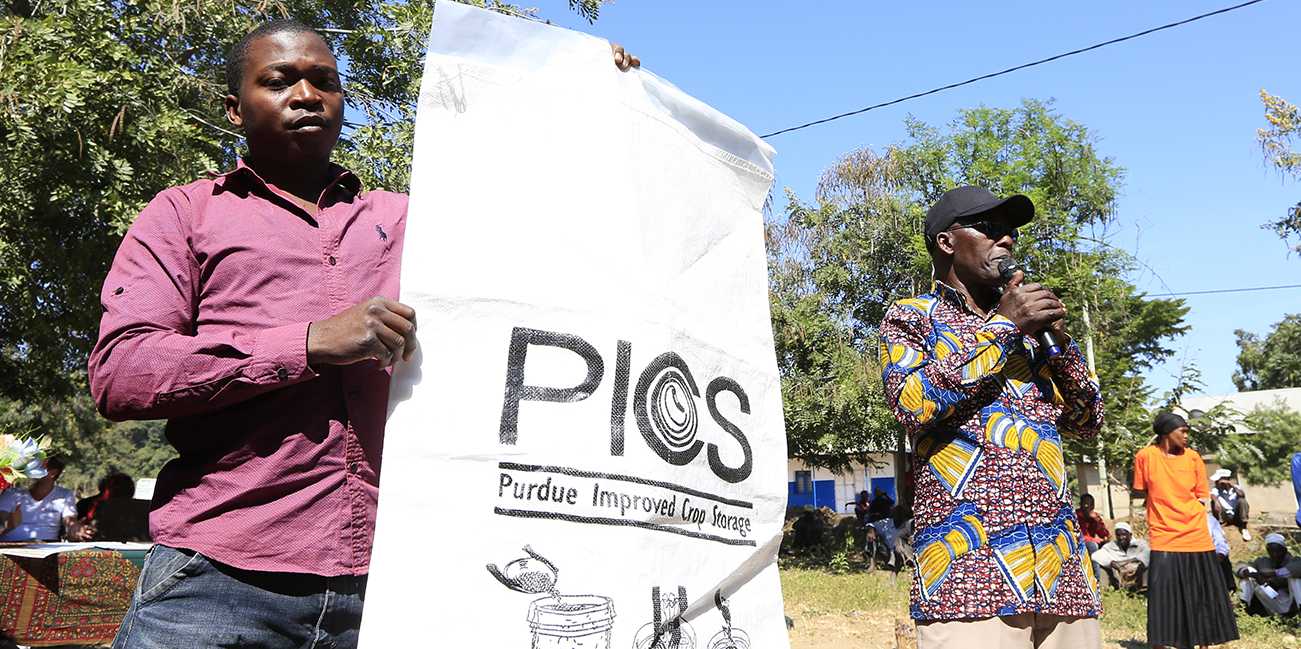Special Bags for Crop Storage in Sub-Saharan Countries
In a project by the University of Zurich, the impacts of improved crop storage on food security of smallholder farmer's households and on local market prices are analyzed. This research in Tanzania by Matthias Huss (Principal Investigator), Michael Brander (Doctoral Student in the International Relations Group) and Thomas Bernauer is reported in the major Swiss newspaper “Tagesanzeiger”.

Around a fourth of the maize in Tanzania and other Sub-Saharan African countries is lost after harvest, mostly due to insect infestation during storage. The researchers included about 1,000 smallholder farmers in the Kondoa and Kilosa districts in a cluster Randomized Control Trial (RCT). Farmers either received a special multilayered bag, which can be closed hermetically, from project partner Helvetas Swiss Intercooperation, or they stored the crops as they usually did. In the hermetic bags, insects die because of lack of air thereby preventing further damage to the stored grain. This also allows the farmers to replace pesticides that are often directly applied to the stored produce.
The researchers collect data on household food security and local market prices through frequent SMS based mobile phone surveys. After the first year of the study, the researchers observe a reduction in food security in the lean season due to the special bags. The lean season is the time in between harvests when own stocks are often used up and the new harvest is not yet brought in. It is usually a time of increased food insecurity. The researchers also want to find out, whether the long-term storage procedures reduce price fluctuations too.
With a new research project in Kenya, coordinated by Thomas Bernauer, and involving a multidisciplinary team from ETH Zurich and the University of Zurich, including Prof. Ulrike Ehlert, Matthias Huss and Michael Brander, a wider range of crucial outcomes will be analyzed. Through a large-scale RCT, the new project seeks to assess the effects of improved on-farm storage on welfare, poverty, nutrition, and human health, with special emphasis on the health of women and their offspring, including epigenetic effects. The project will be implemented in collaboration with a range of partners, including international research institute icipe in Nairobi, the United Nations World Food Programme (WFP), and Helvetas Swiss Intercooperation.
- You can read the full article external page online or download it Download here (PDF, 632 KB). (in german)
- You can find more information external page online (in english)